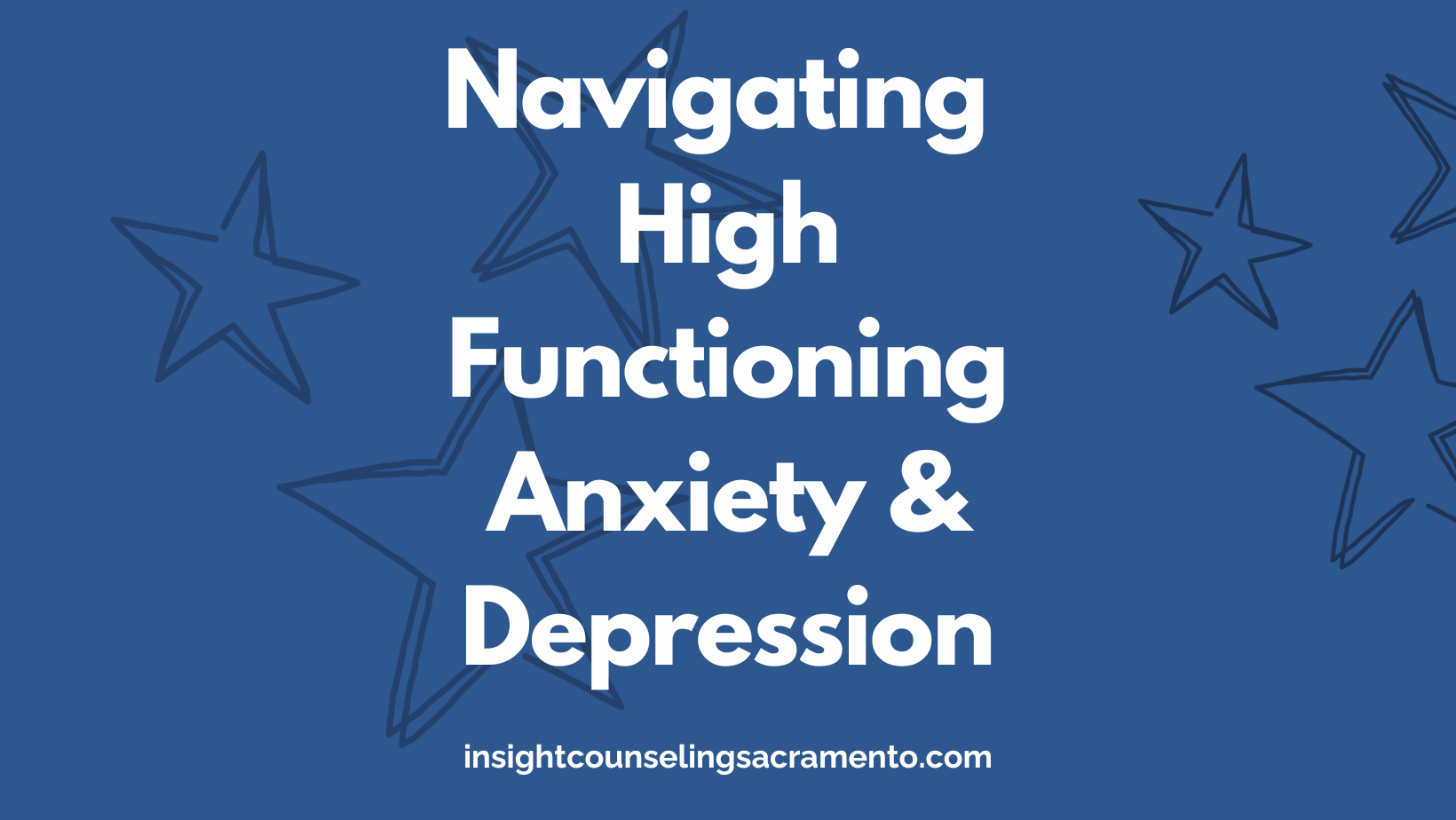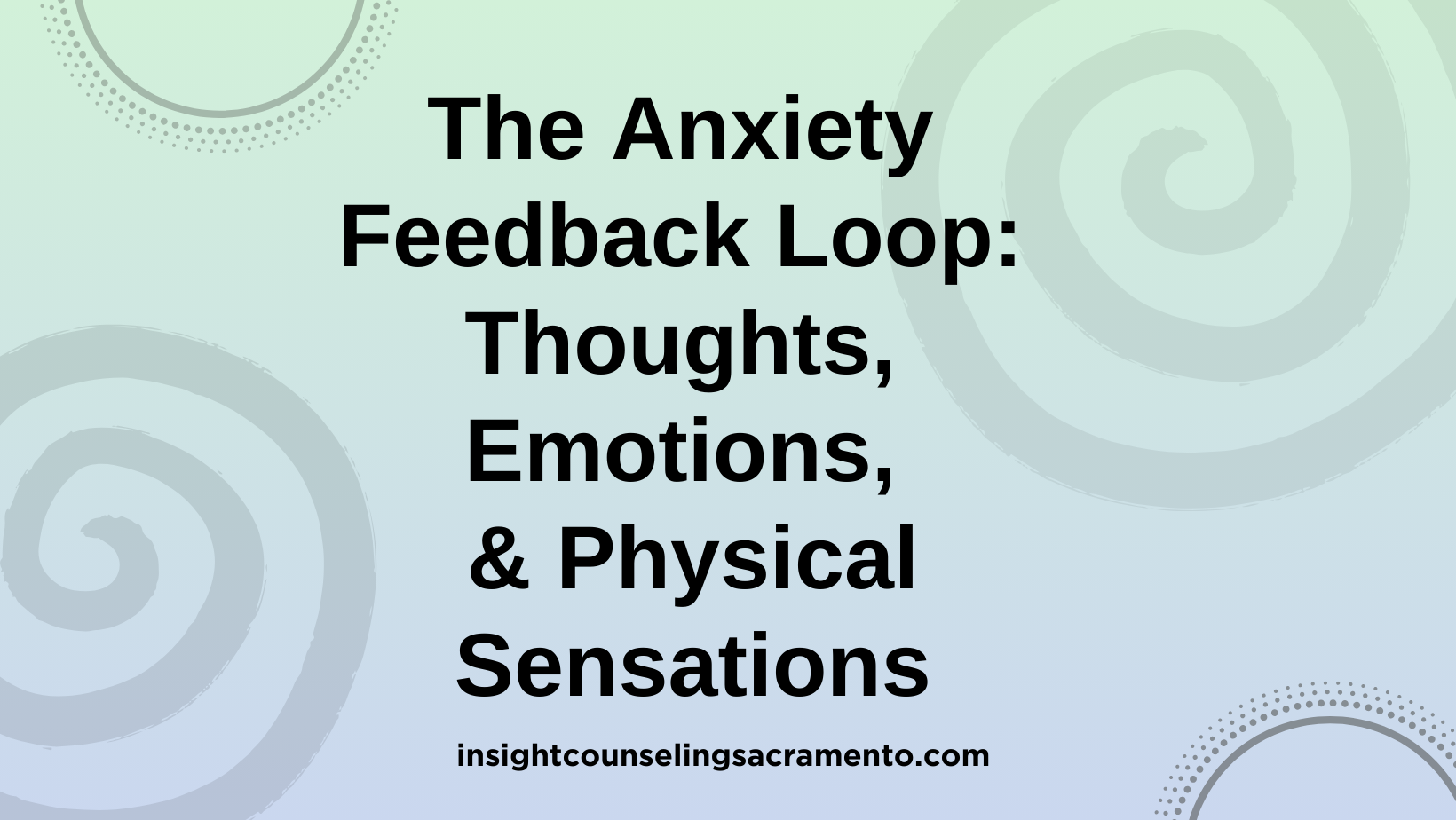
Navigating Life with High Functioning Anxiety or Depression: A Compassionate Approach from a Therapist in Sacramento
Living with "high functioning" anxiety or depression is a journey that often involves a great deal of effort and well-honed coping mechanisms. These strategies can mask the symptoms of anxiety or depression to the outside world, yet internally, individuals may grapple with an ongoing struggle to maintain functioning.

Anxiety Therapist Sacramento - The Anxiety Feedback Loop: Thoughts, Emotions, and Physical Sensations
Anxiety is a complex and often overwhelming experience that can take hold of our minds and bodies, and leave us feeling scared and out of control. Understanding the mechanics of anxiety can help us make sense of the interplay between our thoughts, emotions, and physical sensations and empower us to unravel its grip.

What you Should Know about Mood Swings
Having mood swings doesn't mean you're a failure or that depression, mania or bipolar disorder has "won." It means you need to reduce stressors and increase self-care. Adjusting to mood swings in a healthy way is one of the most difficult skills for people who are living with bipolar or any mood disorder to master. I specialize in helping people increase self-awareness, create a mood swing response plan, and gain understanding of how to move forward using healthy coping skills with self-confidence.

Empower Yourself by Learning to Conquer Social Anxiety
The sense of feeling separate from your body along with physical symptoms like tingling fingers may be caused by stress and anxiety, which effects you physiologically as well as emotionally. If you avoid speaking up at work meetings, skip going to social events, or spend a lot of time worrying about what you're going to say or how you look or sound, you may have social anxiety. You can get control back by understanding what creates these physical and emotional symptoms, and implementing effective coping skills.

5 Tips to combat anxiety and fear of change
While we may feel more in control by sticking to what is familiar, it can also limit our experiences and trap us into a false belief that we can't make positive changes, which may lead to depression and anxiety.